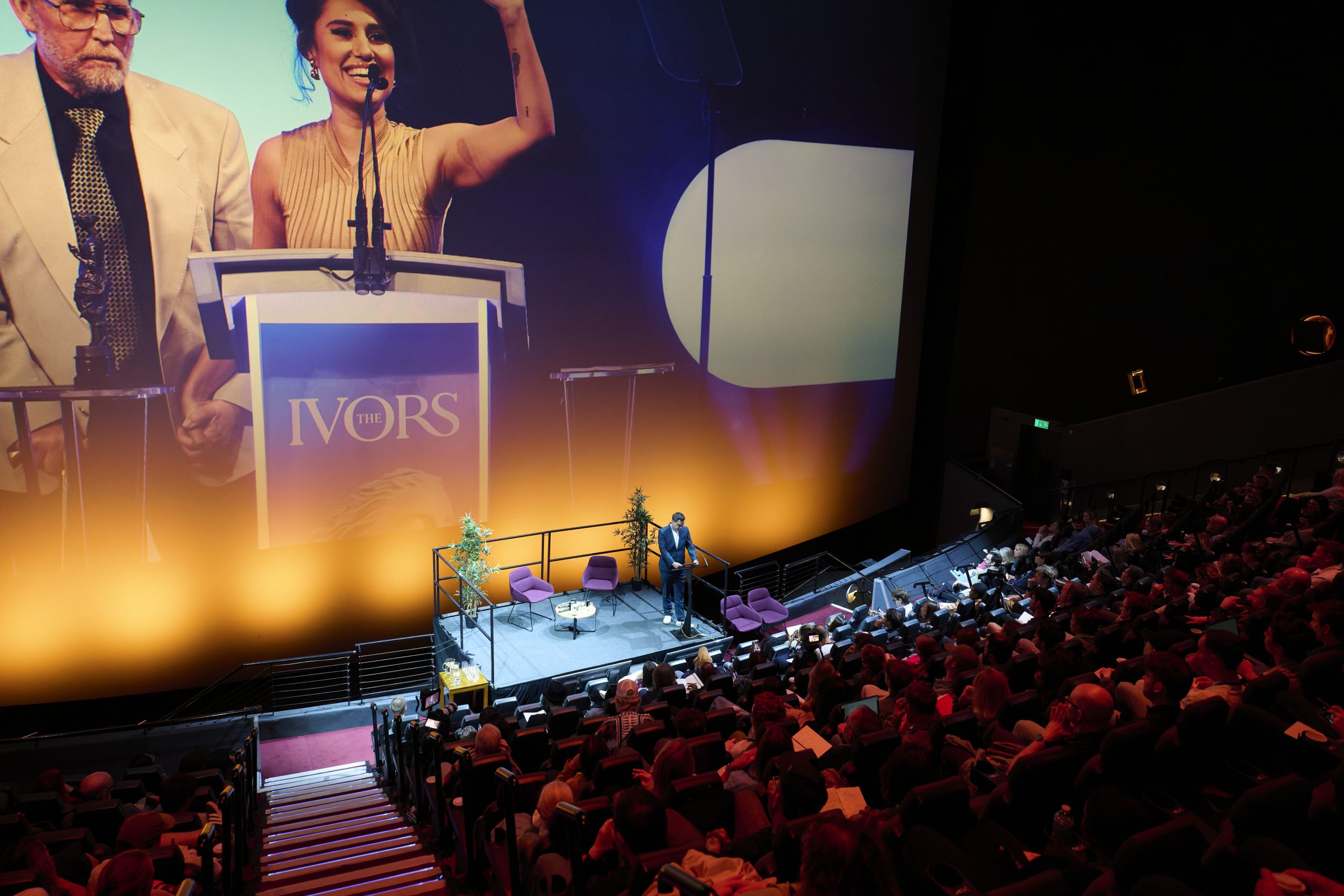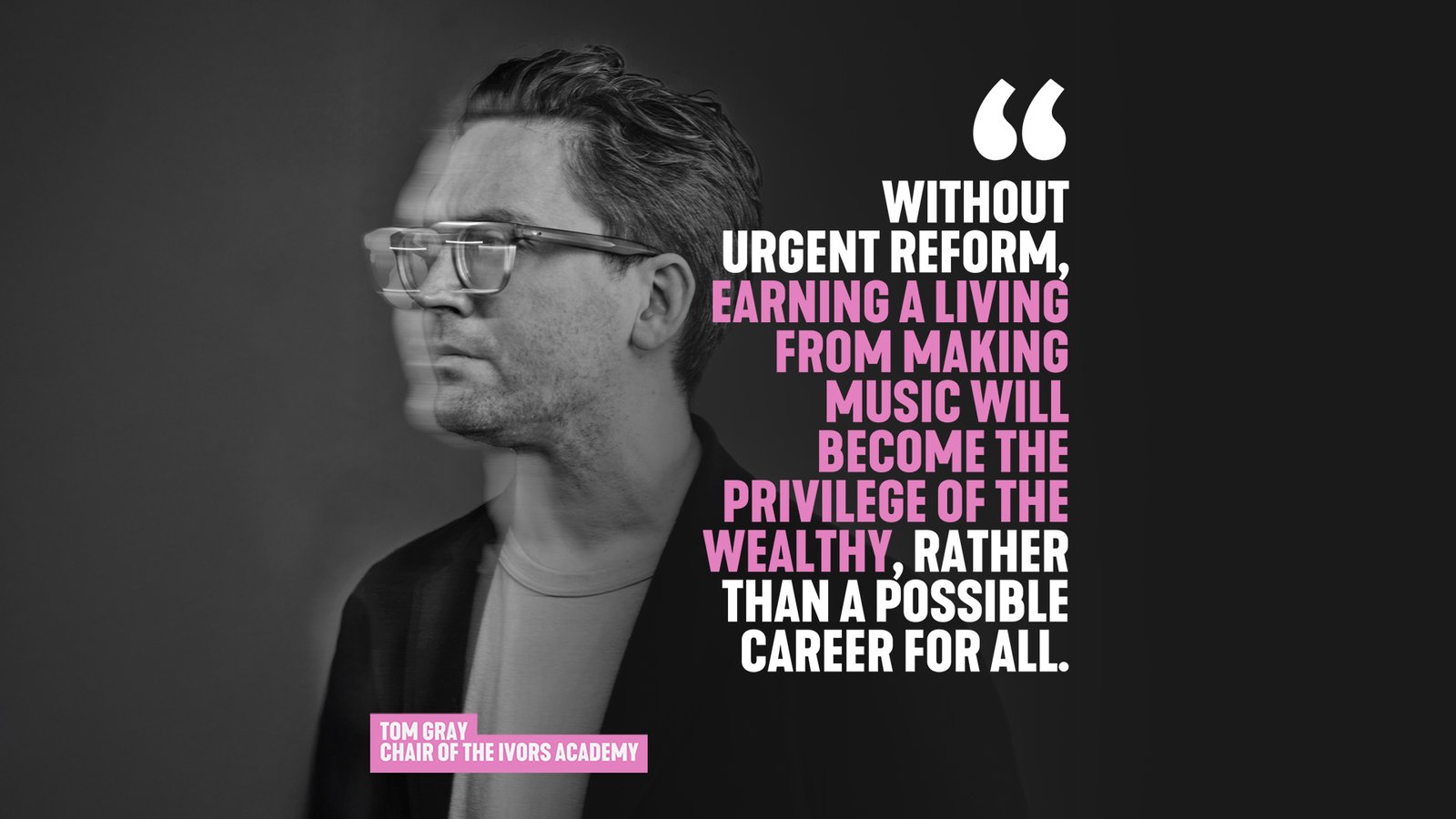Ahead of its meeting with the UK government and Chris Bryant, Minister for the Creative Industries and Arts, The Ivors Academy is highlighting the growing challenges music creators face in earning a sustainable income. This follows Chappell Roan’s recent speech at the GRAMMYs, where she voiced her support for this cause, challenging the recording industry to provide creatives with a liveable wage and healthcare.
SONGWRITERS TAKE A STAND
Songwriters and artists, including Chappell Roan and RAYE, have spoken out about the urgent need for industry reform to ensure fair pay and protections for creatives. At The Ivors last year, RAYE called on labels to allocate songwriters a share of master recording revenues and a minimum daily allowance to cover travel and expenses when working with artists.
For many, the dream of creating music has become a daily struggle. Basic workers’ rights, long denied to freelance creatives, are urgently needed to address an imbalance that has persisted for decades.
Speaking at a government-chaired session of the Creators Remuneration Working Group on Monday 10th February, Ivors Academy Chair Tom Gray and CEO Roberto Neri will highlight the systemic failures affecting songwriters and composers, from declining revenues to the increasing costs they have to bear.
With the Council of Music Makers, which includes the Featured Artists Coalition, Music Managers Forum, Music Producers Guild and the Musicians' Union, The Ivors Academy is advocating for reforms to secure a sustainable future for songwriters, composers and the wider music industry.
At the meeting, The Ivors Academy will call for:
- Labels to introduce a minimum daily allowance (per diem) for songwriters’ expenses when working with artists.
- Labels to assign four points from the master/recording to songwriters.
- Streaming services to introduce mechanisms to reward composers who produce longer works.
- Streaming services to ensure the song is fairly valued by engaging in negotiations with publishers in parallel with labels.
- In line with EU law, for the government to introduce contract adjustment mechanisms.
Tom Gray, Chair of The Ivors Academy, said: “MPs, Peers, independent research, the public, and songwriters and composers all see the problem. Without urgent reform, earning a living from making music will become the privilege of the wealthy, rather than a possible career for all. This is a serious threat to the UK’s music industry and creative industries.”
Roberto Neri, CEO of The Ivors Academy, said: “We’ve heard from songwriters with national radio play and strong streaming figures who still struggle to make ends meet, relying on income outside music just to get by. Our proposed reforms offer practical solutions to redress this historic imbalance, made worse by the economics of streaming. A daily allowance, points on the master, fairer rewards for long-form music, a stronger voice in negotiations, and the ability to adjust contracts from coercive buyouts: these are the steps needed to secure the future of songwriting.”
A BROKEN SYSTEM IGNORED FOR TOO LONG
Despite a rise in percentage rates paid to songwriters, revenues have declined by 20% in real terms from 2000 to 2019, according to research from the Intellectual Property Office (IPO). In 2019, a songwriter generating one million streams per month, a milestone achieved by just 0.026% of tracks, could expect to earn only £15,288 per year. This is less than the UK’s minimum wage for full-time work.
More recent data paints an equally stark picture. A 2024 report by Midia Research revealed that songwriters and composers receive just 10% of the revenue a stream generates. Lack of meaningful streaming income remains the top concern for more than two-thirds of songwriters surveyed, regardless of their career stage or income level.
The public shares this concern. A 2020 YouGov survey found that 76% of respondents felt that songwriters and composers are underpaid, given the value of music subscription services.
As production costs shift further onto the shoulders of songwriters, barriers to entry are growing. Young and emerging songwriters, particularly those from low-income backgrounds, are being priced out of the industry. The Culture, Media and Sport Select Committee’s Economics of Streaming report acknowledged these challenges, calling for a “complete reset” of the streaming model.




